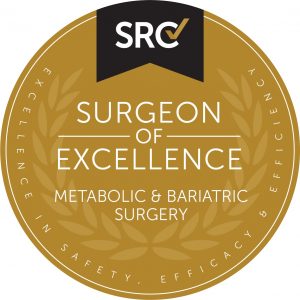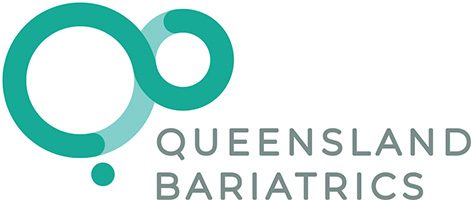Before your surgery low carbohydrate meals or VLCD program make your operation safer. This will reduce the fat in the liver allowing safer access to the area around the top of the stomach during surgery. By reducing the size of the liver prior to surgery it in turn decreases the risk of damage to other organs during surgery. This can be done with either VLCD meal replacements such as Optifast or a “keto” style meals, high protein low carbohydrate. Your dietitian will help you with this preparation.
If you have appropriate private health insurance, you could be covered for gastric banding surgery. There will be a “gap”. This amount is not covered by your fund, and takes into account your pre operative appointments with our consultant nurse, Dr Blair Bowden, dietitian and psychologist as well as the fees for Dr Blair Bowden, his surgical assistant and anaesthetist when the procedure is performed. All subsequent visits with Dr Blair Bowden will attract a fee which a rebate is claimable from Medicare. Most levels of private health insurance cover weight loss surgery, but some of the more basic levels of cover may not. There may also be a waiting period, especially if you have recently joined a health fund and this is usually for 12 months. It is important to check with your private health insurer that you have the correct level of cover and to do this you will need to quote the item number of the procedure you are considering; for lap-band surgery the item number is 31569, for Roux en Y gastric bypass the item number is 31572 and for a sleeve gastrectomy the item number is 31575. For more information we recommend phoning the clinic.
If you do not have private health insurance you can still undergo weight loss surgery as a self funded patient. Unfortunately the public health system does not currently have a waiting list for public surgery. You can choose to be admitted to the Wesley Hospital as a private patient in a private hospital. You will be responsible for all hospital costs prior to admission the Wesley Hospital. The hospital costs are not covered by Medicare. You will however be able to claim some of the fees for Dr Blair Bowden, his surgical assistant and anesthetist when the procedure is performed. All subsequent visits with the clinic will attract a fee which a rebate is claimable from Medicare. For more information we recommend phoning the clinic. Alternatively, you can take out health insurance and wait the appropriate waiting period and be treated as a private patient to bring down your out of pocket expenses.
In certain circumstances, you may be able to access your superannuation funds early to cover the cost of your surgery. It is important to remember that the funds you withdraw from your superannuation fund is classed as income, so we recommend that you consult with your financial advisor or accountant to see if this is right for you. You will also need to check with your superannuation fund directly to see if this is possible, and contact the ATO to obtain the ‘Compassionate release of superannuation – Report by a registered medical practitioner’ application forms. These forms can also be downloaded from www.ato.gov.au and we also keep copies and information in the office.
This is variable and will differ between sexes, ages, and the excess weight one has to lose; weight loss will also differ to those who adhere to the dietary changes and amount of exercise done post surgery. Generally bigger people lose more, they have to use more energy to carry their bodies around, and females, in particular, tend to vary during the month due to their hormonal cycle.
Surgery, which is usually laparoscopy or keyhole usually takes 60-90 minutes of general anaesthetic for the sleeve gastrectomy and gastric bypass surgery. The gastric band surgery usually takes 45 minutes of general anaesthetic. With sleeve gastrectomy and gastric bypass surgery the average hospital stay is one to two nights and we recommend two weeks leave from work for recovery. With gastric band surgery most patients stay a single night and need a week’s leave from work.
Most patients who undergo sleeve gastrectomy or gastric bypass surgery will require about two weeks off work. Gastric band surgery patients often feel well enough to return to work after a week. Every patient is different and recovery times will vary patient to patient.
It is not uncommon in the first couple of weeks to feel hungry as your new stomach does not hold up fluids and therefore the stomach empties quicker. We suggest that you try something slightly thicker, perhaps in the way of low fat drinking yoghurts or protein drinks.
Most patients will find that they are tired after undergoing surgery, and this is very common after undergoing a general anaesthetic, let alone a major operation. An increase in light exercise, moving around and a good night’s sleep will often unleash additional energy.
The pain from your surgical wounds is normal for the first week, please take any pain relief as prescribed (please see the post op sheet). Pain in the shoulder is a result of the gas used during your surgery, it is not uncommon for this pain to loiter for up to 2 weeks. Please continue to take regular pain relief and contact the office if it becomes problematic.
We recommend taking multivitamins at least daily. Some patients may require additional supplementation, commonly an iron tablet, calcium, or extra B vitamins. Your vitamin levels will be checked preoperatively and you will require at least an annual blood test to monitor these, which can be performed with our bariatric GP’s.
Don’t be afraid to call us if you may have ‘fallen off the wagon’, give the rooms a call and have a chat to one of the staff members. It’s good to remember that we are all human and it’s almost impossible to be good 100% of the time.
You should be able to take prescribed medication. You may need to use capsules, break big tablets in half or dissolve them in water so they do not get stuck in the stoma and make you sick. You should always visit your general practitioner who prescribes these
Order only a small amount of food, such as an appetizer. Eat slowly. Finish at the same time as your table companions. You might want to let your host or hostess know in advance that you cannot eat very much.
Alcohol has a high number of calories. It also breaks down vitamins. An occasional glass of wine or other alcoholic beverage, though, is not considered harmful to weight loss.
Always keep some diet soda water or Diet Coke in the fridge for ‘in case of emergency’, trying this immediately in small sips may just dislodge what has become stuck. We suggest soda water and Diet Coke as they are the most carbonated and the bubbles may move what is stuck. If this doesn’t work you need to contact the office immediately to arrange to get some fluid removed to flush through what is blocking your band.
Ring us straight away if you think your band is too tight. Adjustments are very quick and easy and we can point you in the right direction to get some fluid removed by Dr Jennifer Duncombe. We do offer our patients 24/7 help so if you find yourself in trouble on the weekend or a public holiday – just contact our emergency contact number.
Lap-Band adjustments are performed by Dr Jennifer Duncombe. Adjusting the lap-band is considered an extremely important part of the success of lap-band surgery. Prior to a lap-band adjustment all patients are required to only have fluids for two hours and then remain on a fluid diet for 24-48 hours after the adjustment is performed.

